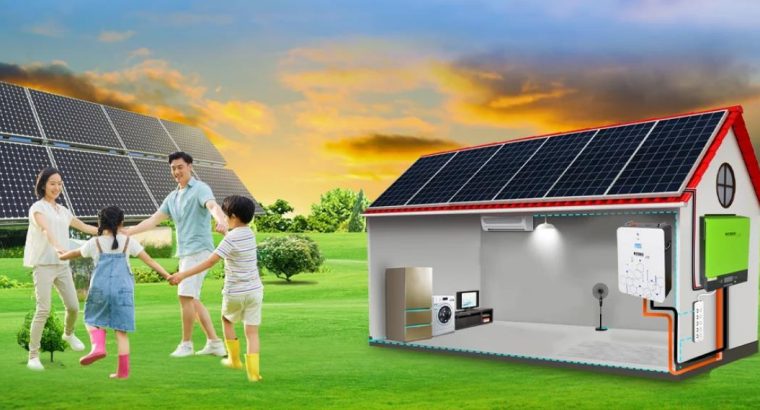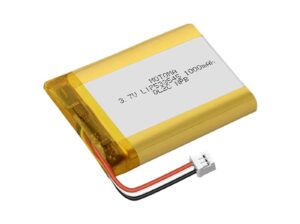Living Off The Grid – How A Solar Powered Home Can Change Your Life
Do you want to save money, be more eco-friendly, and live a more sustainable lifestyle? Then, the solar powered home might be for you! This blog post will cover the history of solar power and why it’s becoming increasingly popular in today’s society. We’ll dive into the details of managing a solar-powered home and how it can drastically change your life financially and environmentally!
What is a Solar Powered Home?
Today, solar power is cheaper and more efficient than ever, making it an excellent option for powering your home. A solar powered home relies on solar panels to convert sunlight into electricity to power the home. Solar panel systems can be used to provide all or part of the power for your home and can even be used to heat water or generate hot air. With solar power, you can live entirely off the grid, which means you are not reliant on utility companies or the government for your power needs. This can be a great way to save money and live a more sustainable lifestyle. Some things to consider before you switch to solar power, such as the initial cost of installing solar panels and whether your home receives enough sunlight, make solar power a viable option. But solar power is worth considering if you’re interested in living off the grid and being more sustainable.
Benefits of Living Off The Grid
There are many benefits to living off the grid, including reducing your reliance on the utility company, lowering your carbon footprint, and saving money.
Reducing Your Reliance On The Utility Company:
Living off the grid means you are not reliant on the utility company for your power needs. This can be a massive boon during power outages, which can happen for several reasons (weather, equipment failure, etc.). Solar panels, inverter, and battery backup mean you can weather any storm without worrying about being left in the dark.
Solar Powered Home helps to Lower Your Carbon Footprint:
Solar power is a renewable resource, meaning it doesn’t pollute the environment to generate electricity. This starkly contrasts with fossil fuels like coal and natural gas, which release harmful emissions into the atmosphere. By using solar energy, you can help reduce your carbon footprint and do your part to combat climate change.
Solar Powered Home Save Money:
One of the most significant advantages of living off the grid is that it can save you money over time. Solar panel systems have become increasingly affordable in recent years, making them a wise investment for long-term savings. In addition, once you’ve installed solar panels, you’ll no longer have to pay for electricity from the utility company. This can lead to significant savings over time, especially if you live in an area with high electricity rates.
Types and Cost of Solar Panels
Solar panels convert sunlight into direct current (DC) electricity. They are often used as an alternative to traditional grid-tied or off-grid power systems in remote locations where it is difficult or expensive to connect to the grid. Many different types of solar panels are available on the market today, and their cost can vary greatly depending on their size, efficiency, and quality.
The most common type of solar panel is the photovoltaic (PV) panel, which uses semiconductor materials to convert sunlight into DC electricity. PV panels come in various shapes and sizes, but the most common type used for residential applications is the flat-plate panel. These panels are typically mounted on the roof of a home and can be connected directly to the electrical system. PV panels are also available in portable versions that can be used for camping, boating, and other recreational activities.
The second type of solar panel is the concentrating solar power (CSP) panel. These panels use mirrors to concentrate sunlight onto a smaller area, which helps to increase their efficiency. CSP panels are typically much more significant than PV panels and are usually used for utility-scale projects such as power plants.
Solar panels are typically made from either crystalline silicon or thin-film materials. Crystalline silicon solar cells are made from ingots of single-crystal or multi-crystalline silicon, while thin-film solar cells are made from layers.
How to Maximize Efficiency
There are many ways to make your home more efficient, but one of the most impactful is to switch to solar power. A solar powered home can change your life in several ways, from saving money on your energy bill to reducing your carbon footprint. Here are a few tips on how to maximize efficiency in your solar powered home:
- Use energy-efficient appliances: One of the best ways to save electricity is to use energy-efficient appliances. This includes big items like fridges and washing machines and smaller devices like TVs and computers. Look for the Energy Star label when shopping for new appliances, and you’ll be assured of substantial savings.
- Take advantage of natural lighting: during the daytime, open up your curtains and let the sun shine in! Not only will you save on electricity, but you’ll also enjoy the benefits of natural light. If you have south-facing windows, consider installing solar shades to keep your home cooler in the summer.
- Mind your electronics: televisions, computers, and other electronics are some of the biggest offenders regarding energy usage. Be sure to turn them off when you’re not using them, and unplug them from outlets when they’re not in use – even if they’re turned off and still use electricity. Use power strips with an easily accessible off switch so that you can quickly shut down.
Challenges in Installing and Running a Solar Powered Home
A solar powered home is a great way to live off the grid, but some challenges come with it. The biggest challenge is installing the system. Solar power systems can be expensive, and you need to ensure you have the right tools and supplies before you start. You also need to have a clear understanding of how the system works and be able to follow instructions carefully.
Another challenge is keeping the system running. Solar power systems require regular maintenance, and if something goes wrong, it can be difficult to fix. It would be best if you also were careful about using too much electricity, which can cause the batteries to overheat and damage the system. If you’re not careful, living off the grid with a solar powered home can be more trouble than it’s worth.
Tips for Going Off the Grid
If you’re considering switching to living off the grid, you should keep a few things in mind. Here are a few tips to help you make the transition:
- Start small. Don’t try to do everything at once. Gradually add more solar panels and other off-grid systems to your home as you can afford it.
- Be prepared for bad weather. Have a backup plan in case of power outages or other problems that could occur during severe weather.
- Learn about energy efficiency. To live off the grid, you’ll need to be mindful of how you use energy so that you don’t overburden your system.
- Stay connected. Just because you’re living off the grid doesn’t mean you have to be completely disconnected from society. Use technology wisely to stay in touch with family and friends while still enjoying your privacy.
Alternatives to Solar Powered Home
If you’re interested in reducing your reliance on the grid, but solar power isn’t feasible for your home, there are a few other options to explore. One is to install a wind turbine. Depending on your location, you may be able to generate enough electricity to power your entire home with a single turbine. If not, you can supplement your power supply with other renewables like biomass or hydroelectricity.
Another possibility is to go completely off-grid and live in a self-sustaining home. These homes are designed to operate independently from any external power sources. They typically rely on a combination of solar, wind, hydropower, and backup generators when weather conditions are less than ideal. Although they require a significant upfront investment, self-sustaining homes can ultimately save you money in the long run by eliminating your monthly utility bills.
Conclusion
Living off the grid is a liberating experience that everyone should try at least once. With a solar powered home, you can take advantage of this sustainable lifestyle and reduce your environmental impact while still enjoying the comforts of modern living. Plus, you’ll have more free time as you don’t have to worry about energy bills or rely on an unreliable power grid for electricity. If living off the grid sounds like something that interests you, consider building a solar-powered home – it will be one of the best decisions you’ll ever make!
Comments (12)
You must be logged in to post a comment.




[…] other safety measures. This ensures that your energy investments are safe and secure and that your home is protected from any potential power surges or […]
[…] for homeowners and businesses looking to reduce their energy costs. Whether you’re looking to power your home with renewable energy or simply want to reduce your electricity bills, Motoma LiFePO4 BESS is the […]
[…] is a technology that enables solar power systems to operate at their MPP, thereby increasing the efficiency of the system. The MPPT […]
[…] met with enthusiastic reviews from consumers. Its impressive list of features, coupled with its powerful performance and long battery life, make it an excellent choice for those looking for a top-tier flagship […]
[…] Solar Inverter vs String Inverter Which is Right for Your Home? If you’re looking to install solar panels on your home, one of the first decisions you’ll need to make is what type of inverter to […]
[…] panels convert sunlight into electrical energy. This electricity can then be used to power our homes and businesses. Solar power is becoming increasingly popular as technology improves and costs […]
[…] power is an increasingly popular choice for powering homes and businesses. It is clean, renewable, and often more cost effective than traditional sources of […]
[…] for renewable energy sources, more and more renewable energy sources are being integrated into the power grid, requiring the use of BESSs to help balance supply and demand. UL 9540 is a new set of standards […]
[…] resource that can positively impact the Environment. It can generate electricity, heat water, and power homes and businesses. It can also power transportation, desalinate water, and produce hydrogen […]
[…] into alternating current (AC) electricity using an inverter. AC electricity can be used to power homes, businesses, and other electrical […]
[…] power supply during times of power outages, making it an excellent investment for those who live in areas that experience frequent power […]
[…] when needed. This technology is being used in a variety of applications, ranging from residential homes to large-scale power plants. In this article, we will explore some of the different battery energy storage systems and […]